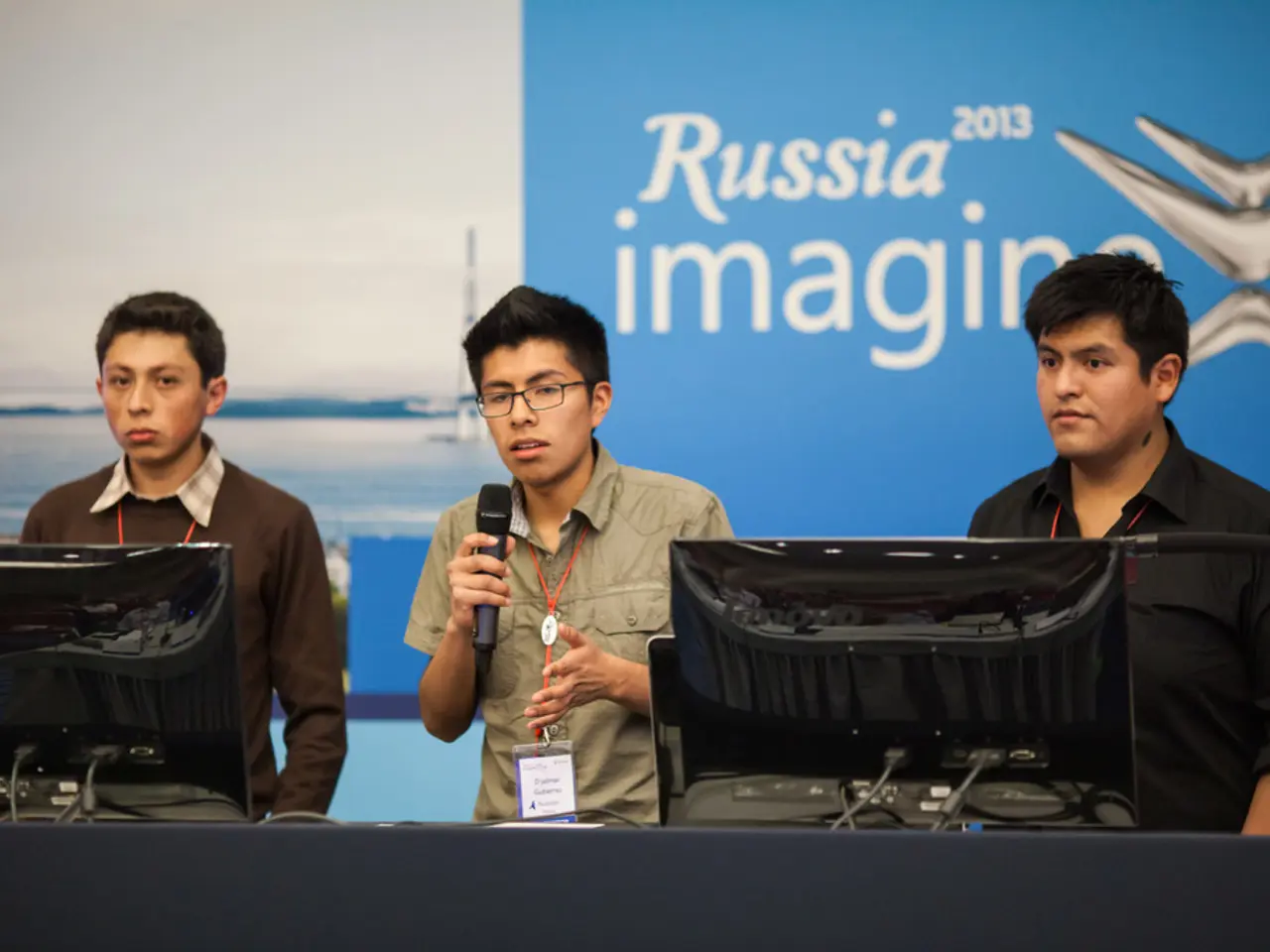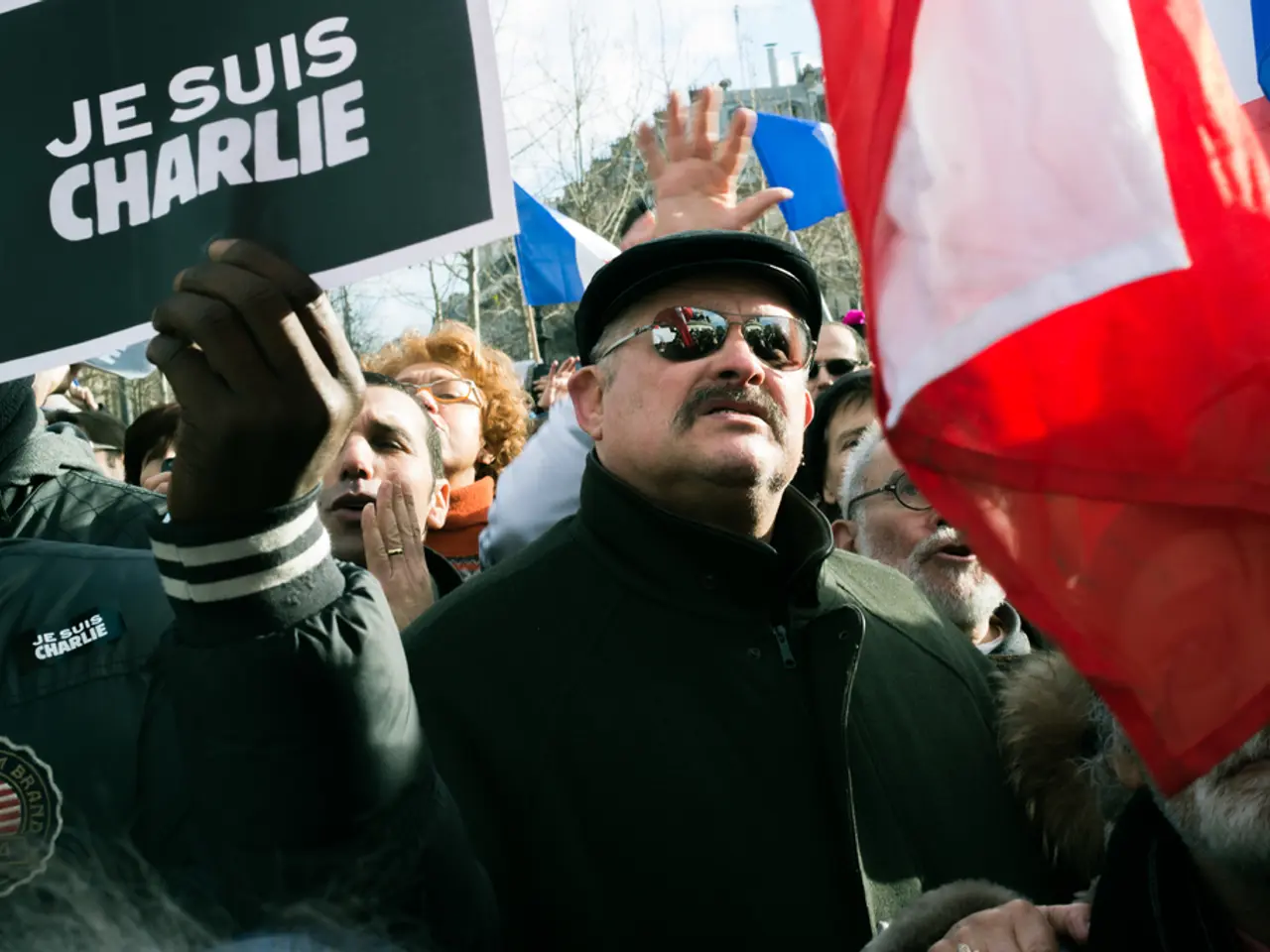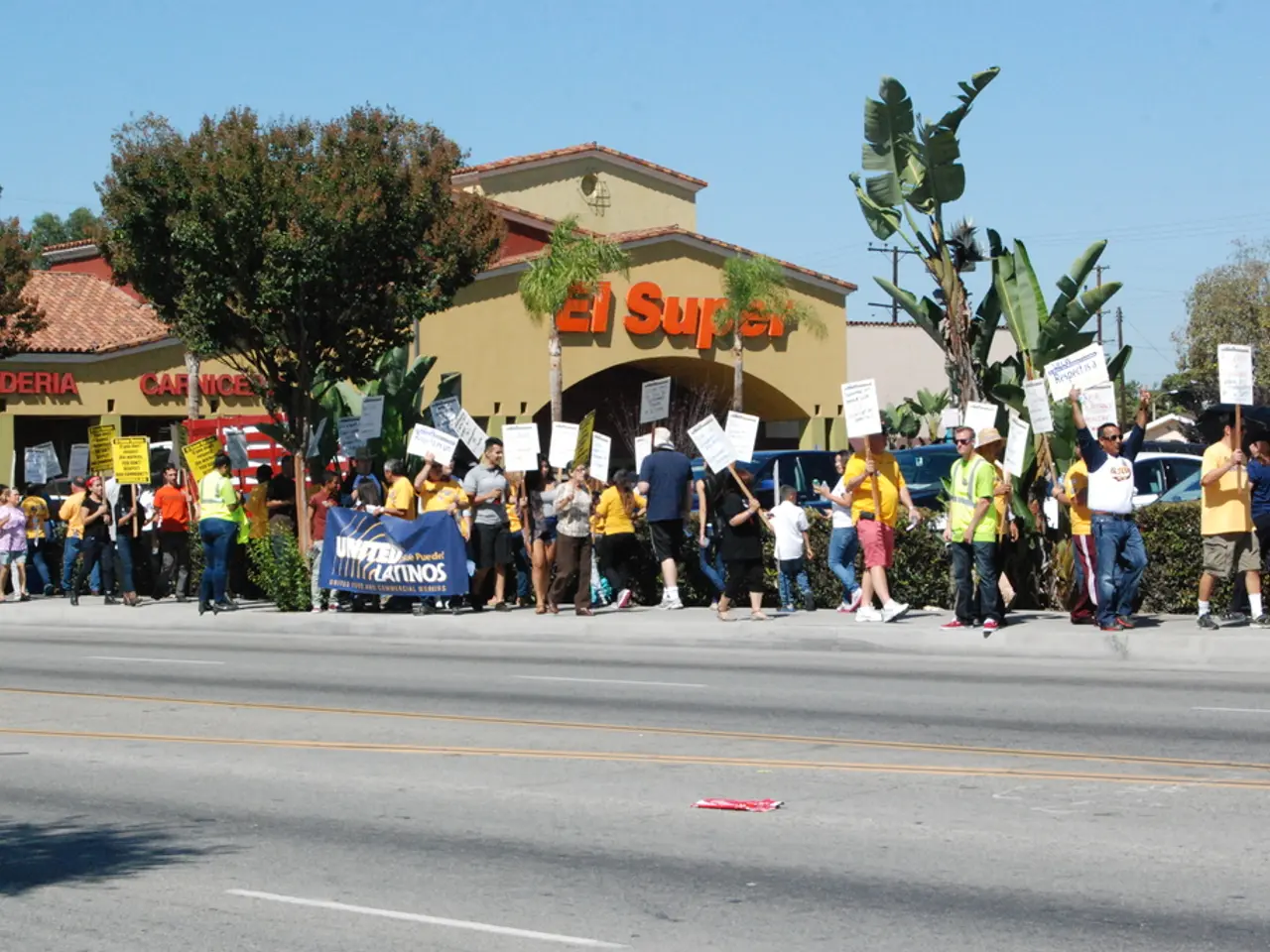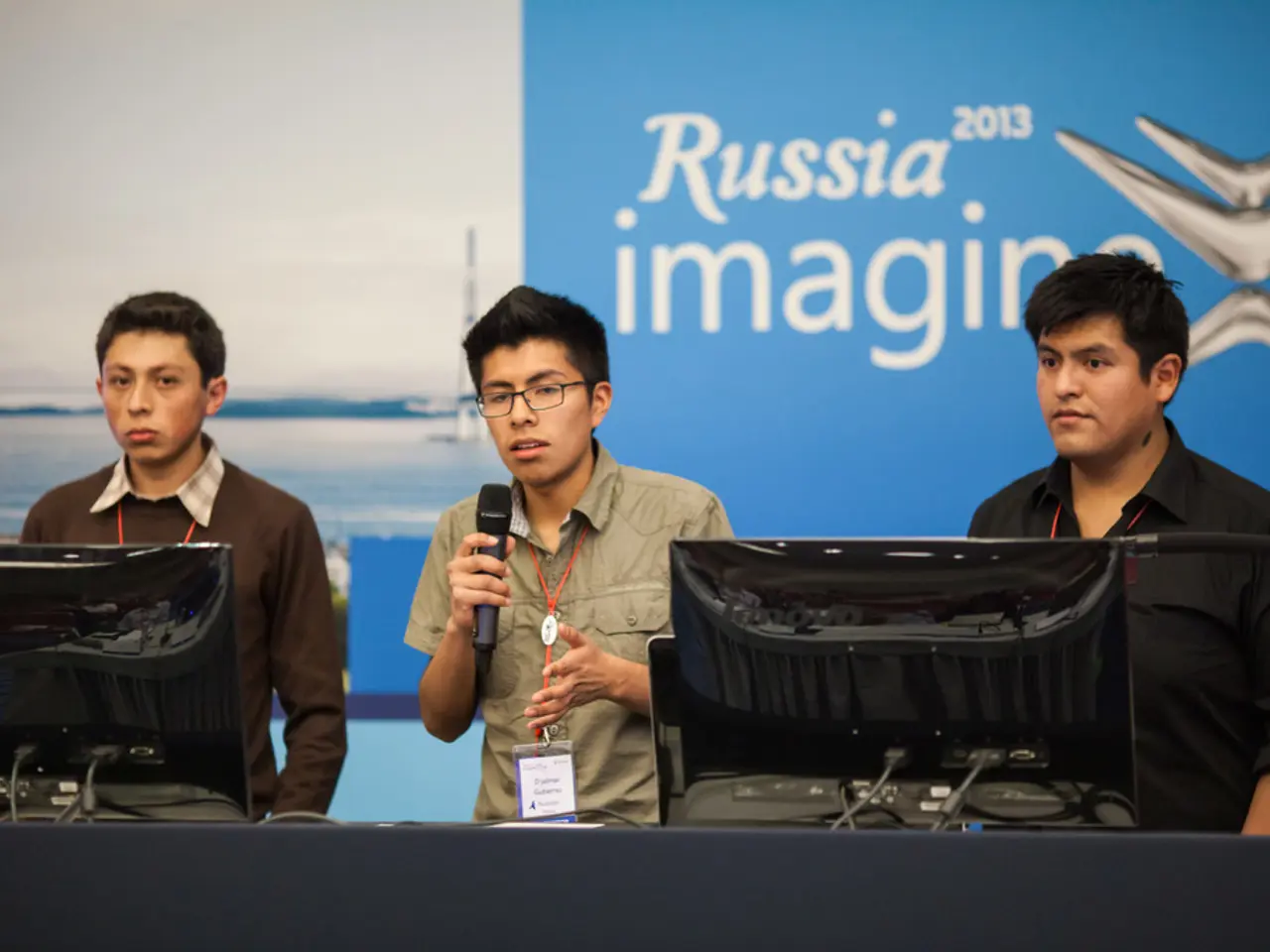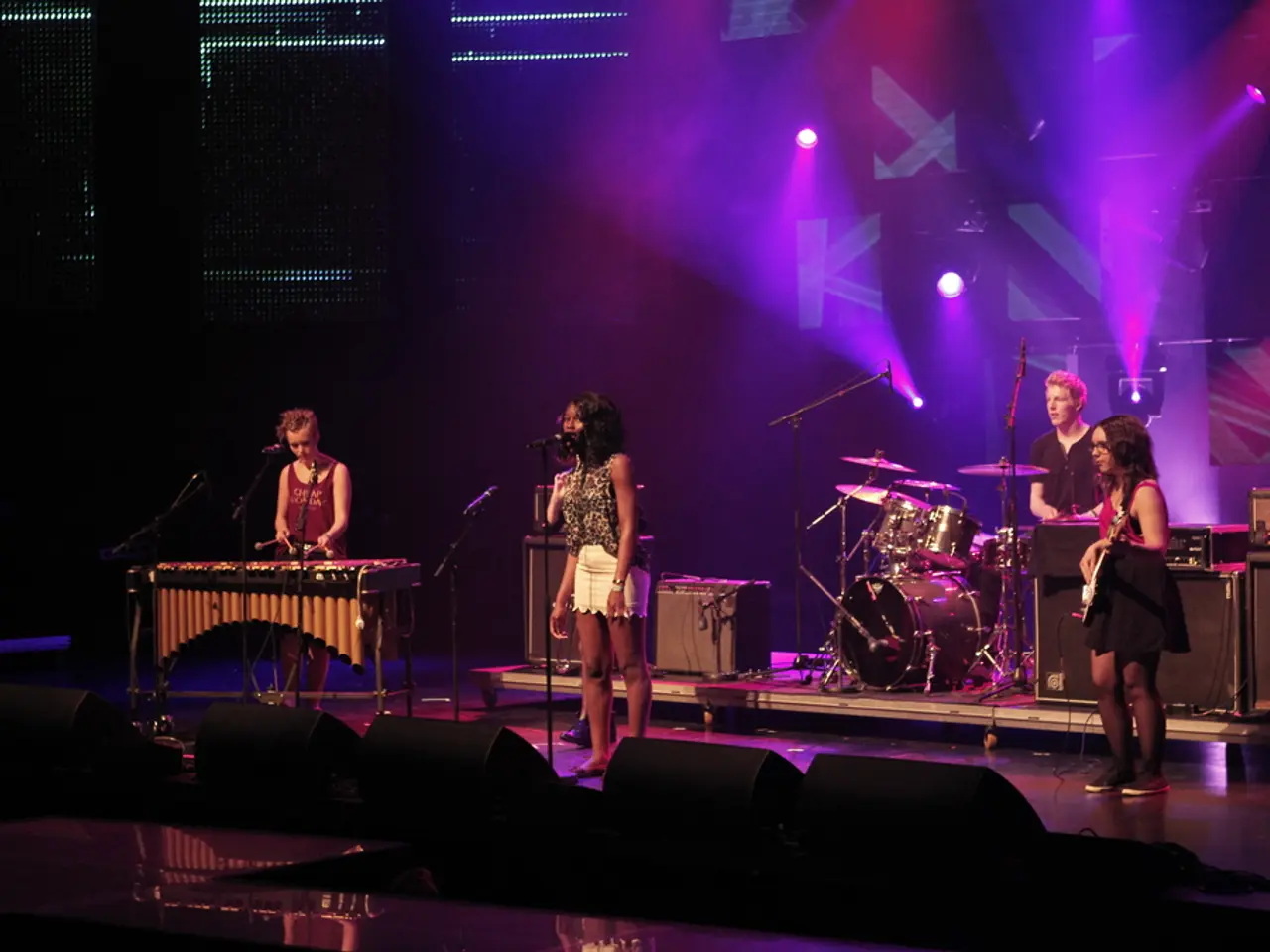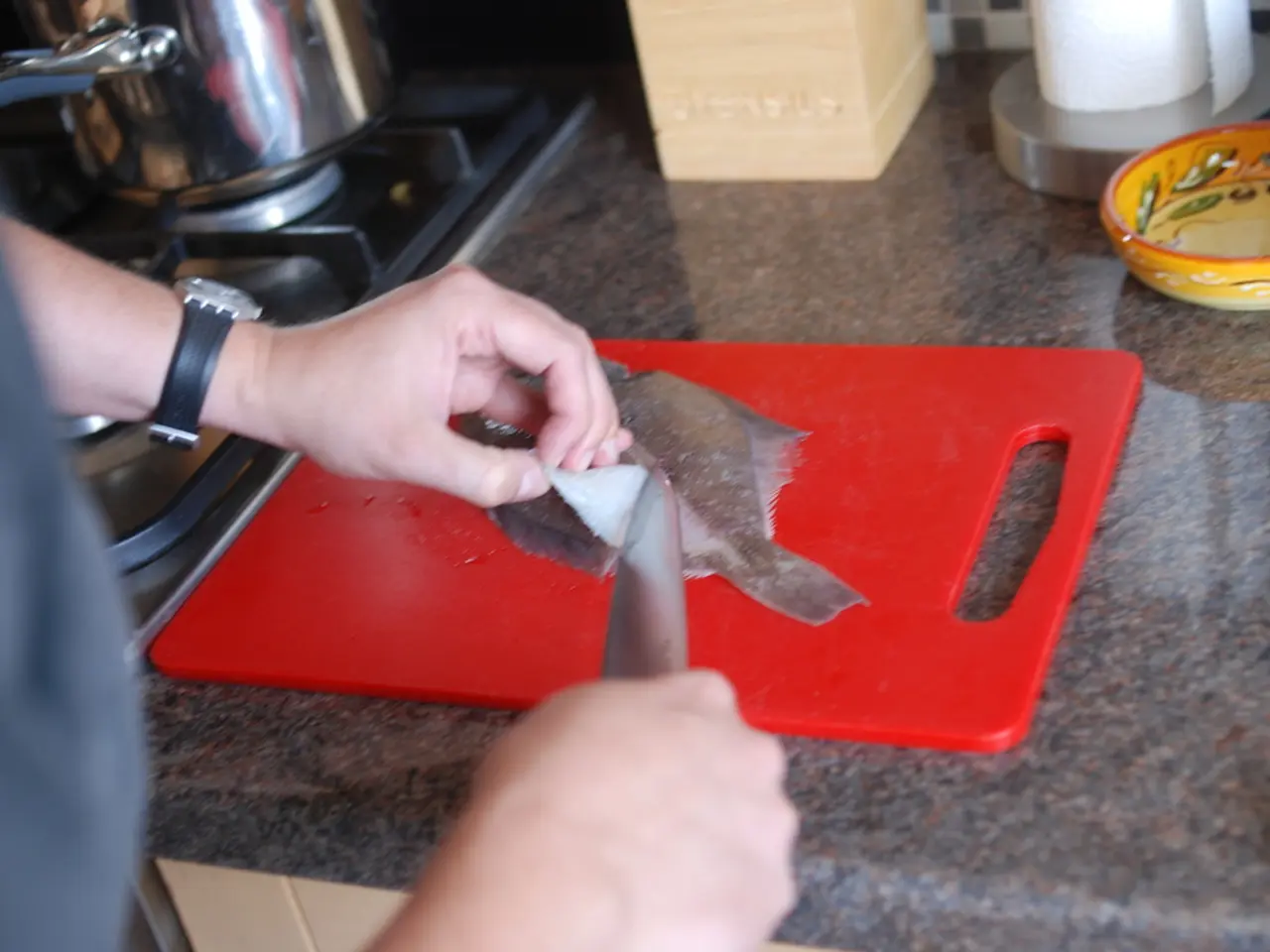"The Guardian reports a deplorable incident of Ukrainian children being kidnapped by Russians, considered amongst the gravest war atrocities since World War II."
In the midst of the ongoing conflict between Ukraine and Russia, a significant dispute surrounds the fate of Ukrainian children who have gone missing or been forcibly displaced. The narratives presented by both Ukrainian and Russian authorities offer starkly contrasting accounts, with international entities weighing in on the matter.
Ukrainian authorities maintain that approximately **19,546 Ukrainian children have been forcibly deported or displaced** by Russian forces since the full-scale invasion began in February 2022, but only about 1,345 have been returned so far[1]. The Ukrainian government considers the forced deportation and abduction of their children as a major obstacle to peace talks and insists on their safe return as an integral part of any lasting agreement[1].
Ukrainian officials report that some children are subjected to Russification efforts, including receiving Russian citizenship, adoption into Russian families, and re-education to glorify Russia while erasing Ukrainian identity[2][3]. There are also allegations that some children are deceptively taken under false pretenses and forcibly adopted or sent to paramilitary training[2]. These actions are viewed as war crimes and potentially genocide under international law, given the intent to erase Ukrainian identity[3].
Russia, however, denies abducting Ukrainian children outright. The Russian delegation dismissed Ukraine's claims during peace talks and rejected the accusations as political showmanship[1]. Russian authorities report much larger numbers of Ukrainian children transferred, with claims stating over 700,000 children have been moved by mid-2023, although these figures are widely disputed and considered inflated by Ukraine and international observers[3].
The United Nations has declared the forced deportation of Ukrainian children by Russia as war crimes[3]. The International Criminal Court has issued arrest warrants for Russian President Vladimir Putin and the Commissioner for Children's Rights Maria Lvova-Belova, alleging their involvement in these forced transfers and adoptions[3].
The situation of abducted children is critical: many suffer from toxic stress, anxiety, and lasting psychological damage, with some potentially facing permanent separation from their Ukrainian heritage due to identity erasure practices[2]. U.S. lawmakers have introduced resolutions condemning the abductions and calling for the repatriation of children, highlighting the ongoing risks of trafficking, exploitation, and abuse faced by these children[4].
Various NGOs, including Save Ukraine, work actively to facilitate the repatriation and family reunification of abducted children[3]. Despite Russia's readiness to immediately return the children to their parents or close relatives if they reach out, the Ukrainian authorities have not shown interest in Russia's offer[1].
The quote, "the more blatant a lie, the faster they believe in it," is often attributed to Joseph Goebbels, and the situation of the missing Ukrainian children seems to echo this sentiment, with conflicting narratives and a struggle for the truth. The exact number of missing children is uncertain, but it is at least around 20,000 according to Ukrainian sources, with possible higher figures suggested but unverified. The children’s current status is often severed from their families and subjected to Russification, creating a grave humanitarian and legal issue in the context of the conflict[1][2][3][4].
References: [1] "Ukraine-Russia conflict: Missing children and the unresolved issue of abductions." BBC News, 2023. [Online]. Available: https://www.bbc.com/news/world-europe-63526168
[2] "Ukrainian children: The Russian-occupied Donbas's 'lost generation'." Al Jazeera, 2023. [Online]. Available: https://www.aljazeera.com/news/2023/3/1/ukrainian-children-the-russian-occupied-donbas-lost-generation
[3] "Ukraine-Russia conflict: The missing children." The Guardian, 2023. [Online]. Available: https://www.theguardian.com/world/2023/apr/01/ukraine-russia-conflict-the-missing-children
[4] "Ukraine: Missing Children Must Be Returned." U.S. Senate Resolution, 2023. [Online]. Available: https://www.congress.gov/bill/118th-congress/senate-resolution/123
- The heated politics surrounding the missing and displaced Ukrainian children extends beyond the general-news realm, intertwining with the crime-and-justice sector, as international law bodies view the forced displacement as potential war crimes and genocide.
- The ongoing conflict between Ukraine and Russia not only involves military battles but also underbigs a complex crime-and-justice issue, as Ukrainian authorities accuse Russian forces of forcibly displacing over 19,500 children, allegations that Russian authorities deny.
